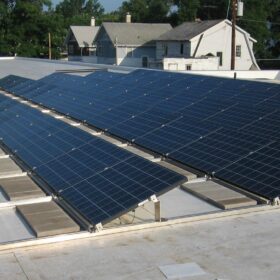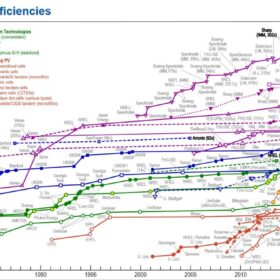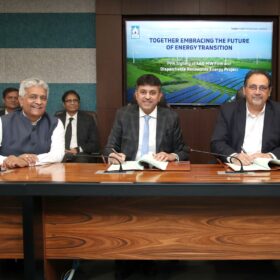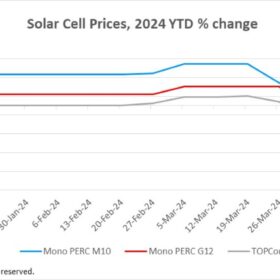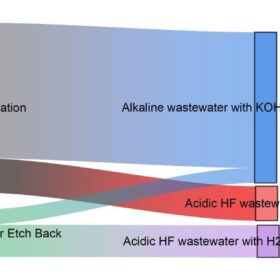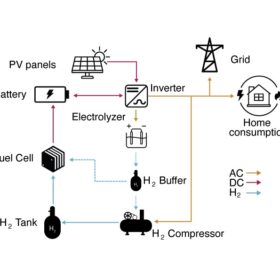The Hydrogen Stream: Hygenco to set up green hydrogen, ammonia project at Tata Steel SEZ’s Gopalpur Industrial Park
Hygenco aims to produce 1 million tonnes per annum (MTPA) of green ammonia from its plant at Tata Steel SEZ’s Gopalpur Industrial Park in Odisha. The project’s initial phase is set for commissioning by December 2026.
Algorithms to detect underperforming rooftop PV panels
Australian researchers have developed multi-stage algorithms to remotely detect and accurately diagnose underperforming solar panels in residential and commercial PV systems.
NREL interactive chart of solar cell efficiency now including ‘hybrid tandems’
The new cell category includes perovskite/silicon, perovskite/CIGS, III-V/silicon and perovskite/organic tandem PV devices. It will list the absolute record efficiency for all-perovskite, two-terminal tandems regardless of the number of junctions.
Tata Power secures PPA with SJVN for 460 MW renewables-plus-storage project
Tata Power Renewable Energy Ltd will develop a hybrid plant comprising solar, wind, and battery storage components to meet the 460 MW firm and dispatchable renewable power requirement.
Accelerated declines in solar cell prices since late March
In a new weekly update for pv magazine, OPIS, a Dow Jones company, offers bite-sized analysis on solar PV module supply and price trends.
New metallization tech for HJT solar cells minimizes silver use, increases efficiency
German research institute Fraunhofer ISE has unveiled a new metallization process for heterojunction solar cells that reportedly increases power conversion efficiencies by over 0.1% while reducing silver consumption. A device built with the new technique achieved an efficiency of 23.2%.
Microsoft announces largest corporate procurement of renewables
Microsoft has signed on for 10.5 GW of renewable energy with Brookfield Renewable Partners. The projects might cost more than $11.5 billion to build, according to BloombergNEF.
New water circulation tech promises lower PERC solar cell manufacturing costs
A German team developed models to illustrate water-saving potential in PERC silicon solar cell manufacturing based on a circular approach and commercially available technology. In the case of a 5 GW fab, water savings of up to 79% and wastewater discharge reductions up to 84% could be achieved, a “significant” improvement compared to a reference scenario.
Solar bloodbath: Titans clash in ruthless price war
The ongoing price war between top global suppliers could catalyse more competitive solar panel pricing in the Indian market, potentially leading to an increase in solar adoption at both the commercial and residential levels.
New model shows how to power homes exclusively with hydrogen, solar, batteries
Researchers in Spain has found that combining PV power generation with fuel cells and battery storage may help homes considerably reduce their levelized cost of energy. Their simulation reportedly demonstrated homes may also become completely self-sufficient.

